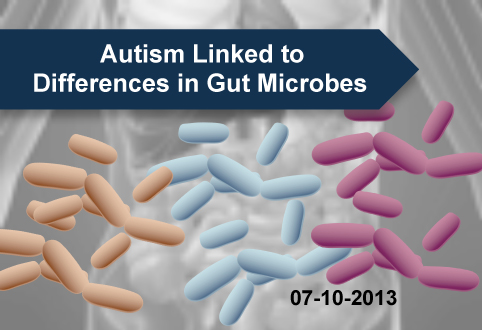Check out other stories from the Latest News
Autism Linked to Differences in Gut Microbes
By Chelsea E. Toledo, M.A. on July 10, 2013

Background: Inside the human gut, communities of benign microbes thrive, aiding in digestion. Studies have demonstrated that gastrointestinal (GI) issues often arise in people with autism spectrum disorder (ASD), but very few have examined how variability in so-called “good bacteria” in the gut might contribute to that trend.
What’s New: On July 3, 2013, the online journal PLOS ONE featured a study examining systematic changes in gut microbes as they related to ASD and accompanying GI problems. The researchers administered a survey to 40 children between the ages of three and 16 to assess symptoms of GI issues and ASD. They then took fecal DNA samples, which revealed that the children who had reported ASD symptoms had less diversity in their gut microbes than their typically developing counterparts, with significant and systematic reduction of certain carbohydrate-degrading and/or fermenting bacteria.
Why it’s important: This study demonstrated that the presence of ASD symptoms—as opposed to the symptoms of GI problems—was linked to specific irregularities in gut microbe composition. The finding could inform future research to diagnose and formulate dietary interventions for treating ASD.
Help me understand :
| Source(s) : |
| Tweet |

